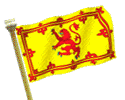A couple of questions for y'all: 1) I've come to see that reading and relying on musical notation is a real hindrance. I think relying on notation feeds my need to process the music in my brain, rather than to "get" it in my body. But if I try to figure out a tune by ear, I just feel stuck. When I hear a note, I'm not even close to being able to identify it. I can use trial and error, but that feels cumbersome and like I'm not learning anything. Any suggestions for how to wean off notation?
2) Stupid question, no doubt: I've been playing on an old whistle I had lying around. I assume it's a D. But how do I know?
3) Finally, I recently bought Grey Larsen's Essential Guide to Irish Flute and Tin Whistle. I think it's a great book (w/ CDs), and he has helped me understand why I should wean off notation. On the other hand, there's a lot of theory at the beginning about scales and stuff. How important is this? Do most whistlers know it? It seems like it puts me back into trying to intellectualize the whole thing. Plus, I just don't get it.
Thanks.
Bob

